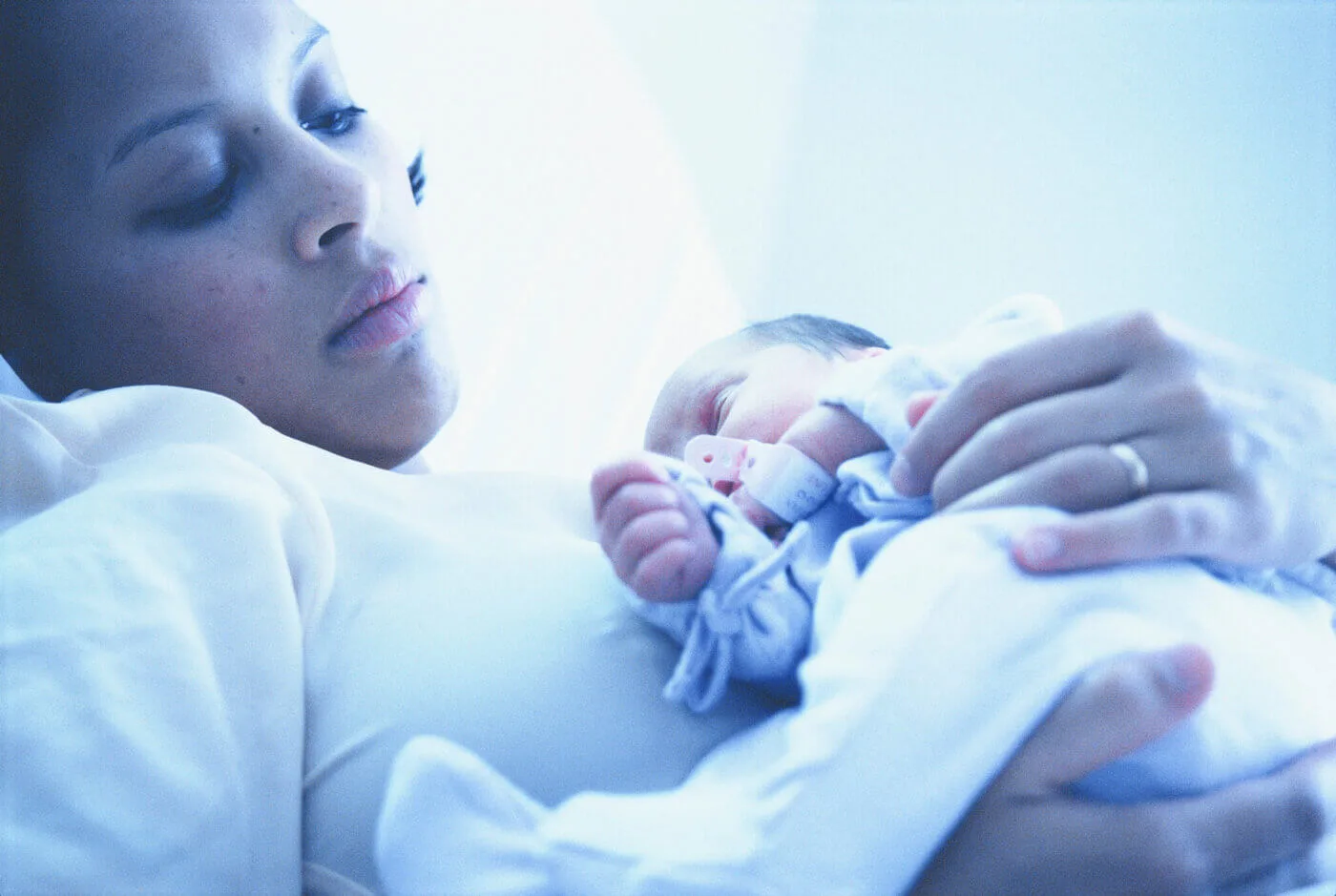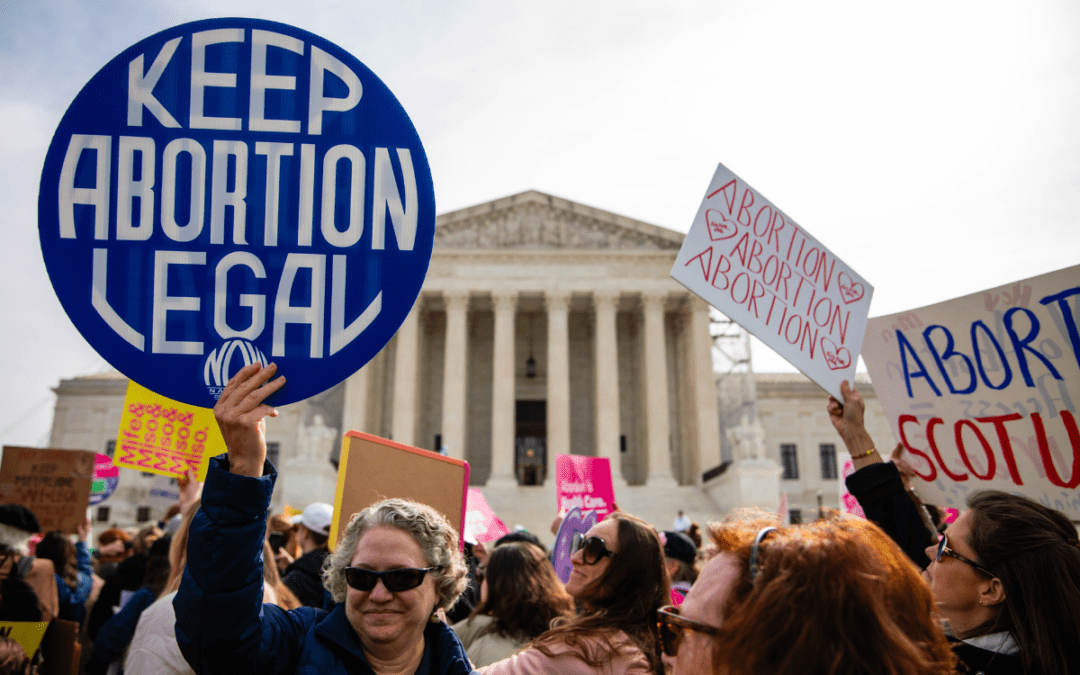
Maternity hospital, Models. (Photo by: BSIP/Universal Images Group via Getty Images)
GOP lawmakers want to counter pushbacks to abortion bans with better maternal care, but they have yet to address the lack of obstetricians and hospitals with delivery units that exist in certain parts of Pennsylvania.
More than 2 million women in the US—including over 193,000 in Pennsylvania—live in what are known as maternity care deserts, counties with a significant lack of maternal health care, according to the March of Dimes.
People who are pregnant or recently gave birth in these areas lacking obstetricians, hospitals with delivery units, or birth centers face a greater risk of death than mothers who live in areas with more robust medical access, research has shown.
With federal abortion rights no longer in place after the US Supreme Court overturned Roe v. Wade, Republican state lawmakers want abortion bans that do nothing to address the maternity care deserts in the commonwealth.
“Without Roe, what happens in the Pennsylvania legislature is more important than ever, and members of the Republican majority have already moved unpopular bills that turn back the clock and effectively ban all abortion,” Sen. Maria Collett (D-Bucks) said. “We need to be expanding access to healthcare across our commonwealth, not eliminating it.”
Where are the Maternity Care Deserts in PA?
According to a 2020 report from the March of Dimes, five counties in Pennsylvania are considered maternity care deserts: Cameron, Forest, Greene, Juniata, and Sullivan.
While those counties are located in more rural parts of the state, according to the criteria in the March of Dimes report, Delaware County, just outside of Philadelphia, can also be added to that list.
In 2021, Delaware County Memorial Hospital delivered 1,800 babies.
In January, the hospital was forced to close its Labor & Delivery department, the nursery, and the Newborn Intensive Care Unit (NICU). Crozer Health System, who owns Delaware County Memorial Hospital, cited COVID-19 challenges and a staffing shortage as the reason for the closure.
The nearest hospital in Delaware County, Mercy Fitzgerald Medical Center in Darby, does not offer maternity services. The closest option for pregnant people is Lankenau Medical Center, located 15 minutes away in neighboring Montgomery County. While it’s not a terribly far distance, having to travel across country lines for maternal care can still present major challenges for anyone lacking access to transportation.
“Now we have a desert in Delaware County for motherhood,” Rep. Gina Curry (D-Delaware) said. “That is unacceptable. We need maternity care back because without maternity care, we can’t pay attention to the social determinants of health that keep us healthy.”
Even in counties that aren’t considered maternity care deserts, it can still be a challenge for pregnant residents to find maternal care.
In 2020, about 96% of births in the commonwealth occurred in hospitals, while 2.2% occurred at home, and 1.3% were in freestanding birthing centers.
Out of the 67 counties in Pennsylvania, 19 have hospitals that don’t provide obstetric services and there are no accredited freestanding birth centers, according to a recent report from The Center for Rural Pennsylvania. Women who live in these counties must travel to the closest hospital with obstetric services when in labor.
Thirty-one counties don’t have an NICU, which means that infants with complications must be transported to the closest regional hospital with NICU services.
What Have Republicans Done to Fix Maternal Health Care Shortages?
Improving maternal care in the commonwealth is already an uphill battle, with care deserts located in different parts of the state. And Republicans aren’t doing much to help.
State GOP lawmakers claim they were involved in extending Medicaid benefits to low-income mothers through a federal option in the American Rescue Plan that allows states to expand Medicaid coverage for postpartum depression from 60 days to one year. But it was the Wolf administration that made the call for Pennsylvania to opt in on the extension—Republican lawmakers had nothing to do with it.
Instead, Republican state lawmakers waged war on maternal care last year, ignoring laws that would help pregnant women, such as the Pregnant Workers Fairness Act and the Pennsylvania Support Through Loss Act.
A recent report from the Center for Rural Pennsylvania went so far as to say the “elimination of “maternity care deserts” is unlikely to occur” in the commonwealth.
If Republicans continue to maintain control of the state Legislature, that scenario will likely hold true.
A Lack of Maternity Care and Maternal Mortality Rates
The maternal mortality rate has been on the increase for decades, according to the CDC. The US has the highest rate of any developed country at 17.4 deaths per 100,000 births. In Pennsylvania, the maternal mortality rate is 18.6.
Women living in maternal health care deserts will face greater health and well-being risks if states ban abortions.
“When you eliminate critical medical services, you don’t eliminate the patients seeking them, you just force those patients to seek care elsewhere, swamping a system that is already struggling,” Angela Neopolitano, Emergency Department nurse at Delaware County Memorial Hospital and president of the Delaware County Nurses Association, said. “The closure puts the most vulnerable residents with the fewest travel options at risk. By forcing them to travel farther, you’re increasing the risk of adverse outcomes.”
Overall, states with the most restrictive abortion laws had a 7% higher maternal mortaility rate than states with fewer restrictions, according to a 2021 study in the American Journal of Public Health.
Even in areas with access to maternal care, other challenges like poverty, limited transit, lack of insurance, and systematic racism can put families at risk of poor maternal and infant health outcomes. Estimates from the CDC show that 60% of pregnancy-related deaths in the US are preventable, but inadequate treatment and identification of health risks contribute to hundreds of maternal deaths annually.
“As a father, I can’t imagine what it would be like to be turned away from the local hospital in my community,” Rep. Mike Schlossberg (D-Lehigh) said. “This issue is becoming pervasive throughout our commonwealth, and it impacts rural and urban communities alike.”
Politics

How Project 2025 aims to ban abortion in Pennsylvania
Former president Donald Trump said abortion was a state’s rights issue recently, but conservative organizations, under the banner “Project 2025,”...

736,000 PA households could lose crucial help on their internet bills
Time is running out for the Affordable Connectivity Program, which provides low-cost high speed internet access for over 736,000 Pennsylvania...

What to know about Trump’s legal issues
Over the past year, former president Donald Trump has become the center of not one, not two, not three, but four criminal investigations, at both...
Local News

Conjoined twins from Berks County die at age 62
Conjoined twins Lori and George Schappell, who pursued separate careers, interests and relationships during lives that defied medical expectations,...

Railroad agrees to $600 million settlement for fiery Ohio derailment, residents fear it’s not enough
Norfolk Southern has agreed to pay $600 million in a class-action lawsuit settlement for a fiery train derailment in February 2023 in eastern Ohio,...






